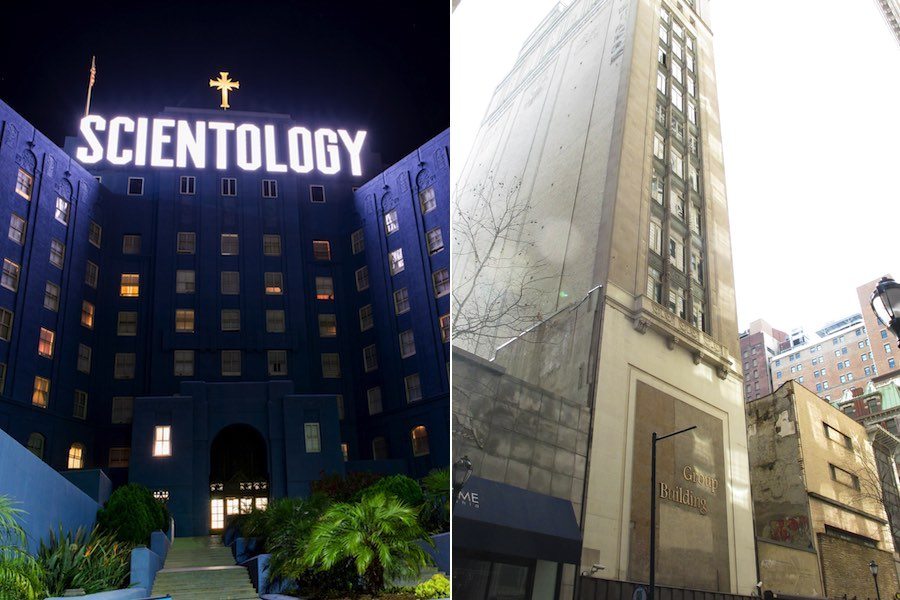Checking out the Church of Scientology: Its Mission and Global Existence
Wiki Article
Discover the Controversial History Behind the Church of Scientology
The Church of Scientology has long been a topic of intrigue and dispute, with a history shrouded in enigma and scrutiny. From its enigmatic origins and starting by L. Ron Hubbard to the claims of misuse and browbeating leveled versus it, the church has dealt with extreme examination from both the public and lawful authorities. With an internet of debatable practices and ideas, along with ongoing lawful battles and examinations, the Church of Scientology proceeds to be a topic that raises eyebrows and inquiries. Recognizing the details and intricacies of its background can lose light on the influence it has actually carried its members and society at large.Beginnings and Founding of Scientology
Initially introduced by L. Ron Hubbard in the early 1950s, the beginnings and founding of Scientology trace back to the development of Dianetics and its succeeding advancement right into an unique spiritual motion. L. Ron Hubbard, a prolific science fiction author, initially introduced Dianetics in 1950 as a self-help system aiming to address numerous emotional problems. Hubbard's publication of "Dianetics: The Modern Science of Mental Health" amassed considerable interest, causing the establishment of the first Church of Scientology in New Jacket in 1954.The shift from Dianetics to Scientology happened as Hubbard sought to increase his trainings past the realm of individual treatment to incorporate wider spiritual concepts. Scientology, as distinguished from Dianetics, introduced the idea of thetans, immortal souls that are core to the idea system of the Church of Scientology. This shift marked the formalization of Scientology as a religion, motivating the reorganization of existing Dianetics groups right into what is now referred to as the Church of Scientology. Hubbard's vision and teachings laid the structure for the debatable yet prominent institution that is Scientology today.
Debatable Practices and Beliefs

Additionally, Scientology's idea in reincarnation and the existence of unusual spirits called thetans has actually been a factor of contention - Scientology Randburg. The Church's mentors regarding thetans being accountable for previous traumas and unfavorable emotions, which can just be cleared through expensive bookkeeping sessions, have actually been slammed as manipulative and economically unscrupulous
One more controversial element is the Church's hostile lawsuits strategies against previous members, critics, and media outlets. Scientology has a history of filing lawsuits and releasing smear campaigns versus those who speak up against the Church, leading to accusations of censorship and intimidation methods.
Allegations of Abuse and Browbeating
Among the dispute surrounding the Church of Scientology's beliefs and practices, accusations of misuse and threat have come to light, more intensifying scrutiny on the company. Former participants and doubters have actually accused the Church of Scientology of participating in violent practices, including physical and psychological misuse, compelled labor, and browbeating to stop members from leaving the church. These accusations Johannesburg North have raised major problems concerning the treatment of people within the company and have actually brought about ask for examinations right into the church's methods.Among one of the most noteworthy situations that brought focus to the issue of misuse within the Church of Scientology was the documentary "Going Clear: Scientology and the Prison of Idea," which featured accounts of previous members that claimed to have actually experienced different forms of persecution throughout their time in the church. Additionally, numerous claims have been submitted versus the church alleging misuse and harassment, additional adding to the unfavorable assumption of the organization. As the allegations remain to surface area, the Church of Scientology faces expanding objection and requires liability regarding its treatment of members.
Legal Battles and Examinations
Current lawful fights and examinations have clarified the questionable practices and affirmed misbehavior within the Church of Scientology. The church has been embroiled in countless legal disagreements over the years, with some of one of the most remarkable situations entailing accusations of fraud, harassment, and infractions of human civil liberties. One noticeable legal battle was the internal revenue service's denial of the Church of Scientology's tax-exempt condition in the USA, which brought about years of lawsuits and appeals before the church ultimately restored its tax-exempt designation.Additionally, the church has faced scrutiny from various federal governments and regulation enforcement companies around the world. In countries like France and Germany, the Church of Scientology has gone through examinations concerning its methods and treatment of participants. Accusations of coercion, economic exploitation, and psychological control have actually been at the leading edge of these inquiries.
In spite of dealing with lawful difficulties and investigations, the Church of Scientology remains to operate worldwide, advertising its ideas and practices while remaining a controversial and divisive company in the eyes of lots of movie critics. - Scientology Randburg
Impact on Participants and Society
Having garnered focus for its debatable methods and alleged transgression, the Church of Scientology's effect on both its members and culture at big continues to be a subject of continuous analysis and discussion. Within the Church, participants are commonly based on extreme analysis, strict policies, and significant economic commitments. Reports of emotional control, compelled interference from relative essential of the Church, and claims of physical and emotional abuse have emerged, causing problem amongst both exterior viewers and previous participants.
Conclusion
To conclude, the church of Scientology has a lengthy and controversial background loaded with claims of misuse, coercion, and legal fights. Regardless of its beginnings and founding by L. Ron Hubbard, the organization's ideas and techniques have triggered a good deal of criticism and analysis. The effect of Scientology on its participants and culture in its entirety remains to be a subject of discussion and investigation.Scientology, as distinguished from Dianetics, introduced the idea of thetans, immortal spiritual beings that are core to the belief system of the Church of Scientology. Former participants and movie critics have actually accused the Church of Scientology of involving in abusive methods, including physical and psychological abuse, compelled labor, and threat to protect against members from leaving the church.One of the most significant instances that brought focus to the concern of misuse within the Church of Scientology was the docudrama "Going Clear: Scientology and the Prison of Idea," which featured accounts of former members that declared to have experienced numerous forms of mistreatment throughout their time in the church. One famous lawful fight was the Internal revenue service's rejection of the Church of Scientology's tax-exempt status in the United States, which led to years of litigation and appeals prior to the church eventually restored its tax-exempt classification.
Having gathered focus for its questionable methods and alleged transgression, the Church of Scientology's influence on both its participants and society at big stays a subject of recurring examination and debate.
Report this wiki page